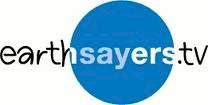Clean Drinking Water: SolarBag's Ambassador in Ecuador
Sustainability Advocate - Voices of Sustainability
Ambassador Programs
Technological advancements need ambassadors who literally put the technology in the hands of those who would benefit significantly from its use - technology transfer at the one-to-one level. Over the last few years, Brand Ambassador Programs have been formalized and integrated into other PR, marketing, and social media initiatives. This post is about ambassadors as part of content creation and marketing campaigns in the service of sustainability at the intersection of clean tech and clean drinking water.
Barry Heidt, Ambassador
Barry Heidt, videographer and sustainability advocate, became an ambassador for Puralytics' SolarBag when he carried one with him on his recent journey to the Achuar Terrritory deep within the Amazon forest of Ecuador. He was on his way to Ecuador as part of an online video campaign, Ecuadorian Wisdom Keepers, co-sponsored by Barry’s organization, Sustainability Action Media (SAM) with EarthSayers.tv, voices of sustainability and with the help of the Fundacion Pachamama folks in Ecuador. An interview with David Tucker of the Pachamama Alliance's Journeys program is included with the distribution of this blog through the 3BL Media Distribution Network.
Oil Over Water
Barry knew of Ecuador’s reliance on bottled water and the negative impact on water supplies from the releasing of toxins from oil drilling into local rivers and the contamination of underground water from oil spills. It was part of the reason he was going to Ecuador to interview indigenous community leaders around the Rights of Nature movement. Shortly before he left, he heard about the SolarBag and called George Jendrzejewski, VP of Sales for Puralytics.
The Technology
The SolarBag is a purification, transport, and storage system for use with unclean water. Without using chemicals, consumables, or power, the SolarBag is able to remove microorganisms, organic contaminants, and heavy metals from water making it safe to drink. It can be used over and over again. It purifies 3 liters at a time, and can be used several times per day, on sunny or cloudy days.
SolarBag in Ecuador
A photograph of community leader Domingo Peas captures the result of Barry's efforts - a demonstration of the SolarBag.
Barry also introduced the SolarBag to Didier Lacaze while interviewing him. Since 2000 Didier (video interview of Didier by Barry is attached) has been collaborating in Ecuador alongside official health organizations to design and execute different health related programs for indigenous peoples and has developed with his wife, Rosa Canelos, The Sacha Warmi Center, an educational resource. Didier can help Domingo and other interested community leaders take the product from interest to implementation with the help of NGO’s.
Sustainability and NGO Programs
Barry at the same time he is advancing the indigenous voices of sustainability also leverages Puralytics' commitment to sustainability and programs they already have in place for the SolarBag 3L which is part of their NGO program to provide “clean water for the developing world.” For one such program with Good Samaritan Ministries, which like Puralytics is headquartered in Beaverton, Oregon, the SolarBag is making a big difference in four Malawi, African communities (view video) where Good Samaritan has a field presence, a key to implementation. This is but one example of Puralytics' NGO programs.
More Sustainability Ambassadors Programs
We see Barry's experience as an ambassador a good model for what we would like to do in the future when SAM and EarthSayers.tv team up to create online video content around the indigenous voices of sustainability. It compliments NGO programs already in place and can be used to increase awareness of important technologies in the developing world. We use social media to seed the Web with our content of wisdom keepers and encourage sustainability-related organizations to partner with us to increase the visibility of indigineous peoples and the technology that will work for their communities.
Ruth Ann Barrett, Sustainability Advocate, April 2, 2013, Portland, Oregon.









